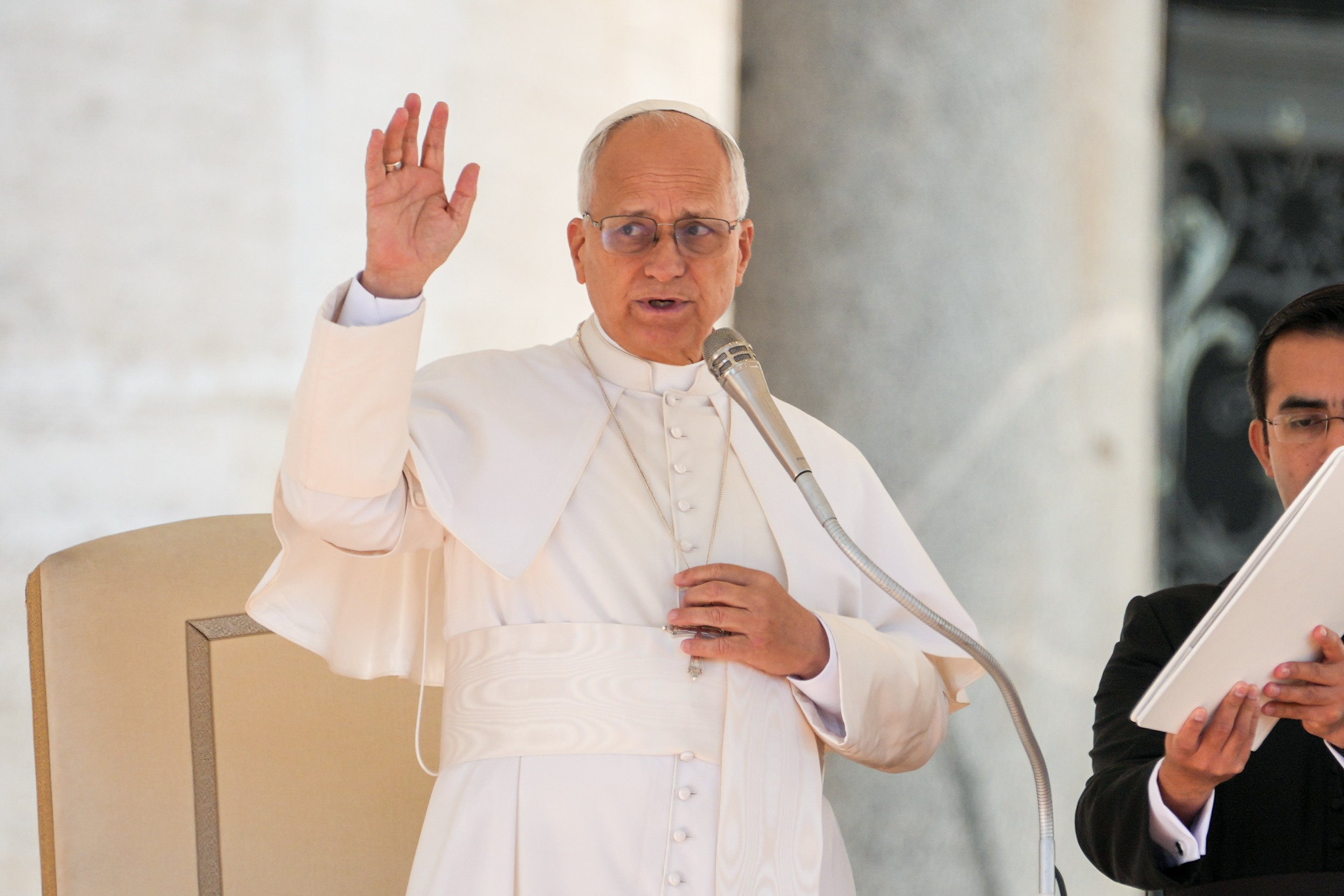April 6, 2018 at 1:53 p.m.
WORD OF FAITH
Do-it-yourself Christianity
'Therefore, friends, select from among yourselves seven men of good standing...whom we may appoint to this task.' Acts 6:3
In his latest book, "The Social Mission of the U. S. Catholic Church," Rev. Charles Curran makes an interesting observation: "The Catholic approach to theology is characterized by 'both-and' approaches rather than 'either-or' approaches."
This is frequently the way our sacred authors deal with issues in which they're involved. Problems arise when we make an either-or out of a both-and.
This is especially the case when we look at the structure of the Church. Before Vatican II in the 1960s, we pictured the Church as a pyramid: the pope and hierarchy on top, the laity on the bottom.
The Second Vatican Council participants stressed that all members are simply the "people of God." We were encouraged to look and act horizontally.
Sunday's three readings certainly support such a horizontal image.
Notice, in the Acts (6:1-7) passage, how the Twelve solve the food distribution problem in the early Jerusalem church.
Self-serve
Greek-speaking widows are experiencing difficulties with Aramaic-speaking food distributors; so, the Twelve appoint seven new distributors - who are all Greek!
This implies that problems were solved in the early church not by imposing a solution "from above," but by letting those who had the problem solve the problem.
Faith in the importance of everyone in the community would be reinforced by the author of 1 Peter (2:4-9): "You are 'a chosen race, a royal priesthood, a holy nation, a people of his own, so that you may announce the praises' of him who called you out of darkness into his wonderful light."
What a terrific resume to present to the world! But as uplifting as these words are, John's Jesus provides us with an even more confidence-building image.
During His Last Supper discourse (John 14:1-12), Jesus amazes all the men and women around the table with the promise, "Amen, amen, I say to you, whoever believes in me will do the works that I do, and will do greater than these, because I am going to the Father."
Growing up Catholic, I frequently was reminded that each priest was "another Christ." John would have agreed with that appraisal; but he also would have corrected such a limited application of the title.
All are Christ
According to his theology, a priest becomes another Christ not at his ordination, but at his baptism. The priest, along with all other Christians, are other Christs. Each of us, by our baptism, is expected to carry on the ministry of the first Christ.
The belief that all are other Christs is a theme in the Scriptures. The uniqueness of this passage is Jesus' promise that we other Christs will do "greater" things than even He accomplished.
Writing 60 years after Jesus' death and resurrection, John seems to be reflecting on the fact that followers of Jesus have, by that time, taken His ministry far beyond first-century-CE Palestine.
The risen Jesus, in the person and ministry of His disciples, has encountered people and situations the historical Jesus never encountered. We today are not only carrying on His ministry, we've expanded further than it reached at the time of the Last Supper.
The hierarchy alone could never accomplish such a feat. We couldn't be other Christs if we weren't committed to the both-and of our faith.[[In-content Ad]]
SOCIAL MEDIA
OSV NEWS
- Dig deep and work patiently to keep church on solid foundation, pope says
- Portland archbishop on ICE: Human dignity comes from God, not government
- Christian hope shows the earth can resemble heaven, pope says
- Washington Roundup: Election shifts; Venezuela vote; transgender passports, and more
- Novel highlights power of art and music as a salve to troubled humanity
- Supreme Court sides with Trump administration to temporarily block full funding for SNAP
- Former diocesan fundraising director indicted on wire fraud for alleged 6-figure theft
- Love is key to church’s mental health ministry, says bishop who lost family to suicide
- Caring for creation is part of peacemaking, pope tells COP30
- Security for Syria’s religious minorities is disastrous, say religious freedom advocates







Comments:
You must login to comment.